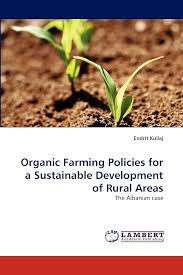
Organic farming policy plays a crucial role in shaping the practices, standards, and regulations that govern the organic agriculture sector. As the demand for organic products continues to rise globally, effective organic farming policy is essential to ensure that organic farming practices are implemented consistently and sustainably. These policies cover a broad range of areas, including certification requirements, environmental regulations, financial incentives, and research support. By providing a clear framework for organic farming, these policies help maintain the integrity of organic products and protect both farmers and consumers.

One of the primary components of organic farming policy is the establishment of certification standards. Organic certification ensures that farms adhere to specific practices and avoid synthetic chemicals, GMOs, and non-organic inputs. These standards are typically defined by national or international organizations, such as the USDA Organic program in the United States or the EU Organic Certification in Europe. Organic farming policy outlines the procedures for certification, including the requirements for soil management, pest control, and crop production. By setting these standards, policies help ensure that consumers can trust the organic labels they see in the marketplace.
In addition to certification, organic farming policy addresses environmental sustainability and conservation practices. Policies often promote methods that enhance soil health, conserve water, and reduce greenhouse gas emissions. For example, organic farming policies may encourage practices such as crop rotation, composting, and the use of cover crops to maintain soil fertility and reduce erosion. These practices not only benefit the environment but also contribute to the long-term viability of organic farming. By integrating environmental considerations into policy, governments and organizations support practices that contribute to ecological balance and reduce the environmental footprint of agriculture.
Financial incentives and support programs are another important aspect of organic farming policy. Transitioning to organic farming can be financially challenging for many farmers due to the initial costs associated with certification, inputs, and infrastructure. To address these challenges, organic farming policies may include subsidies, grants, or low-interest loans to help offset these costs. These financial incentives can encourage more farmers to adopt organic practices and support the growth of the organic sector. Additionally, policies may offer funding for research and development projects that advance organic farming techniques and improve overall productivity.
Research and education are also critical components of organic farming policy. Policies that support research initiatives can lead to innovations in organic farming practices and technologies. Research projects may focus on areas such as pest management, soil health, and crop variety development. By funding and promoting research, organic farming policies help advance the scientific understanding of organic agriculture and provide farmers with the tools and knowledge needed to enhance their practices. Education programs, including training for farmers and extension services, are essential for disseminating information and best practices related to organic farming.









